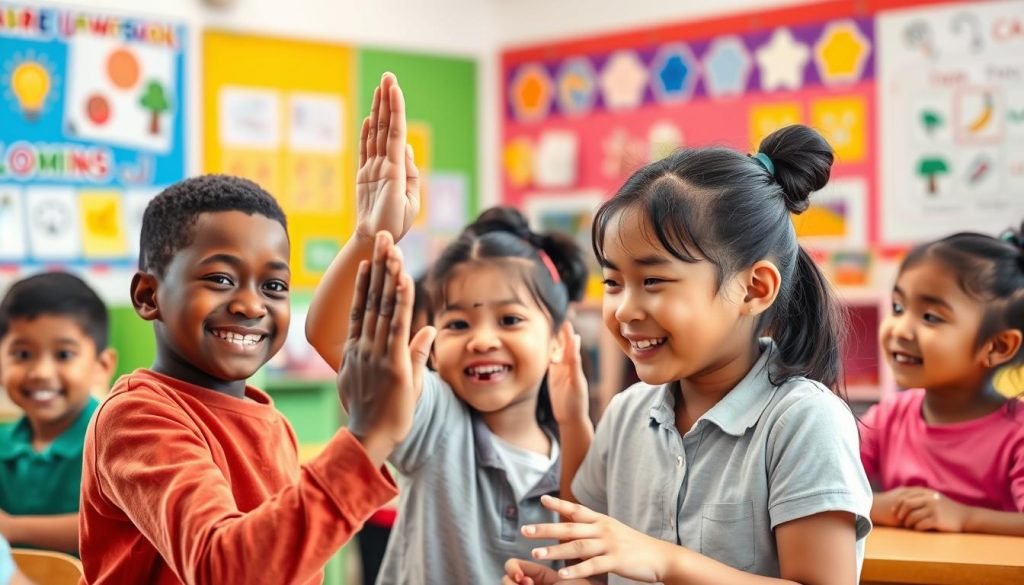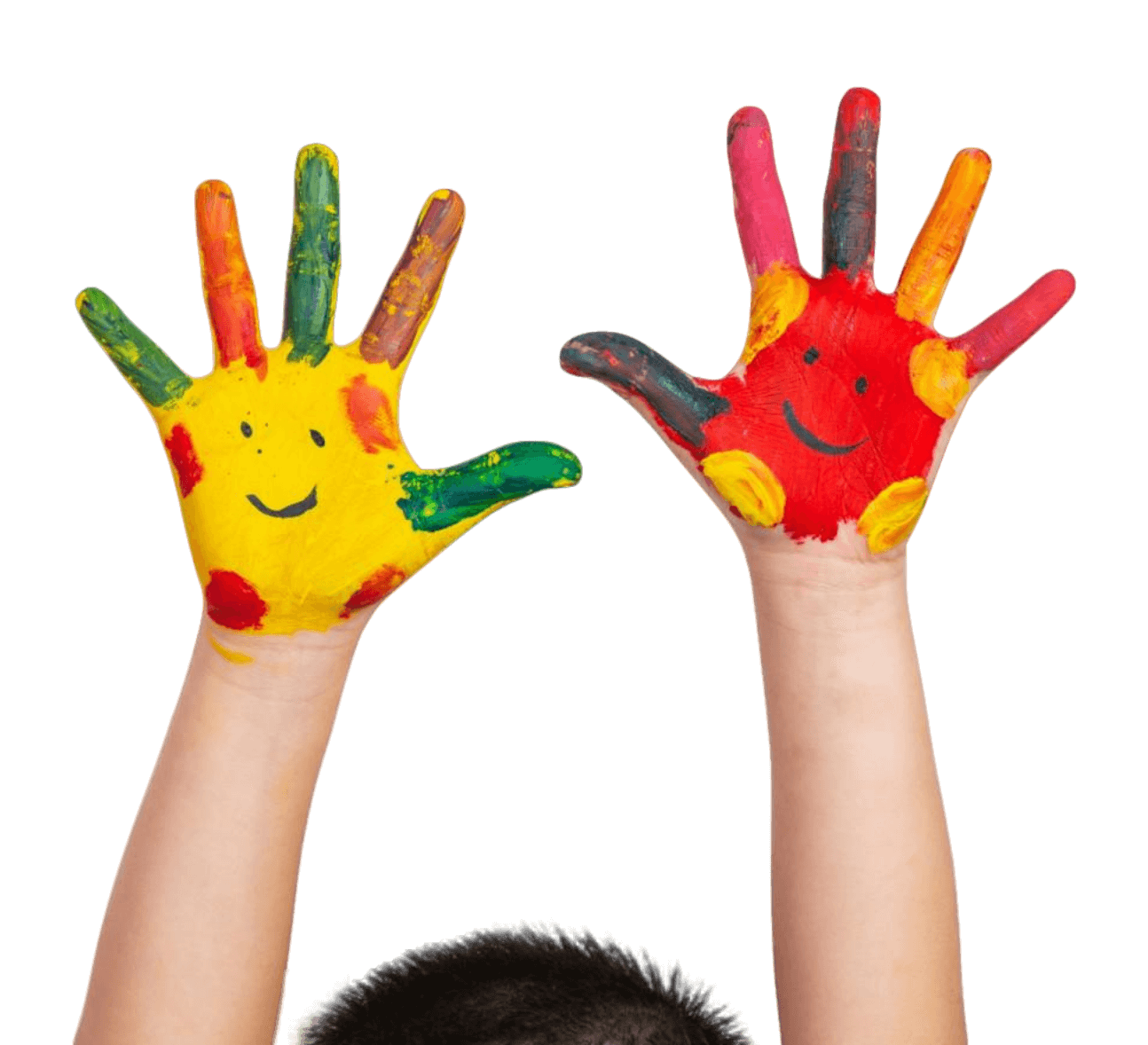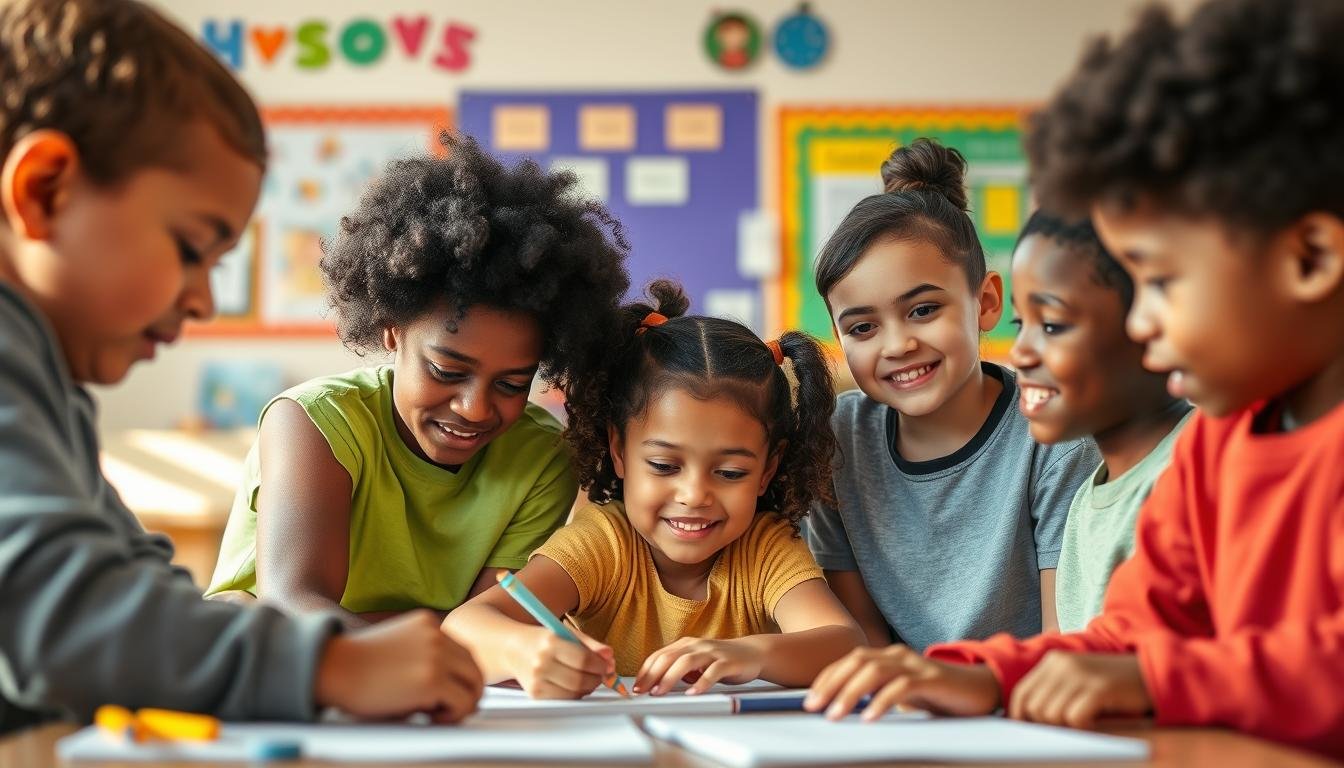Ever wondered why some kids with learning challenges do well, while others struggle? It could be due to confidence. Confidence is key for kids, especially those with learning difficulties. It’s not just nice to have; it’s essential. Kids with learning disabilities often feel more anxious, which can lower their self-esteem.
Kids with learning issues can learn to see failure as a chance to grow. Doing things they’re good at can boost their self-esteem by 25%. This changes how they see themselves and makes them stronger.
Next, we talk about ways to build confidence in kids with learning issues. We’ll look at the importance of understanding, positive feedback, and good advice. Using these approaches can help kids and parents alike.
Let’s dive into how building self-esteem and confidence can change the game for kids with special needs. By using these strategies, we can help our kids not just get by, but flourish.
Understanding the Importance of Confidence in Children with Learning Challenges
Helping kids who find learning tough to gain confidence is vital. It lets them tackle difficulties and see their own strengths. Studies have found that kids who feel confident do better in school. They join clubs, lead teams, and bounce back from setbacks well.
Kids with high self-esteem get along better with others and do well in school. Their mental and physical health is better too. Feeling confident makes them less worried about new challenges. They take part more and keep trying even when things are hard. Special education tailored to their needs boosts this confidence.
Understanding how important confidence is to your child’s growth matters. Things like meditation help with their emotional health and self-confidence. Letting them make choices boosts their sense of importance. A tidy space helps them concentrate and feel less stressed, aiding confidence.
Children lacking confidence often do not do as well in school. They might be too hard on themselves or less creative. Encouraging activities that challenge them a little helps build their confidence. Praising their hard work, as Carol Dweck suggests, fosters a mindset that can conquer learning hurdles. They start seeing possibilities beyond their struggles.
How Positive Reinforcement Can Help
Positive reinforcement is key for kids to grow socially and emotionally. This is especially true for those with special needs or behavior issues. With the right parenting techniques and methods, we can create a loving space. This space boosts their confidence and desire to do well.

Working together, parents and teachers can really help kids who learn differently. This teamwork is very important. It helps these kids feel good about themselves and make friends, even during big changes like the pandemic.
Here are some important ways and their benefits:
| Strategy | Impact |
|---|---|
| Consistent Positive Attention | Enhances confidence and dedication |
| Immediate Feedback | Builds resilience and persistence |
| Behavior-Specific Praise | Motivates desired behaviors |
| Collaborative Approach | Ensures consistent practices at home and school |
Using positive reinforcement well not only improves good behavior but also lifts self-esteem. It helps kids feel more confident, even those who learn differently. By mixing these parenting techniques and encouraging methods into everyday life, we create a supportive world. A world where every kid has the chance to shine.
The Power of Setting and Achieving Goals
Goal setting is vital for giving children a clear path to success. It provides direction, purpose, and a sense of achievement. For kids, particularly those with special needs, it builds confidence and encourages self-improvement.
Children benefit a lot from setting goals. Studies prove they’re 25% more likely to succeed by doing so. Simple steps, like using visual schedules, increase their chances by up to 35%. Celebrating each success motivates them and boosts their drive.
For kids with special needs, tailored educational goals greatly help. Such goals boost their problem-solving skills by 40%. Kids who set SMART goals are 50% more likely to finish tasks. This practice sharpens their focus and decision-making abilities.
Reaching goals regularly boosts kids’ self-esteem by 30%. This increase leads to better class participation and interaction with peers. Children learn to own their choices and actions through goal setting. Goal achievement builds emotional strength in kids. They handle stress and setbacks better. Effort-based praise encourages a resilient and growth-focused mindset.
Achieving goals improves social skills and community ties. Confident kids often take on leadership roles. This confidence also means better peer relationships. Tools like goal charts or interactive games aid in teaching goal setting. According to a University of Kansas study, such tools improved problem-solving by 30% and teamwork by 20%.
Involve your child in setting goals. Whether it’s academic or personal improvement, it can greatly boost their confidence, responsibility, and self-view.
Encouraging Exploration of Interests
It’s crucial to encourage kids with learning challenges to explore what they love. Whether it’s music, arts, sports, or science, it helps them feel good about themselves. They become more confident and do well in areas they enjoy.
At Kids Miracle Steps, we see how important it is for kids to explore their interests. Kids who feel loved and accepted are more willing to try new things. By taking part in different activities, they become more confident. For example, making friends during playdates improves their social skills and kindness.
Also, solving problems boosts their thinking skills by a lot. It helps them overcome challenges on their own. When kids with special needs dive into hobbies, they find out more about themselves. This boosts their confidence and helps them feel proud of their abilities.
To help you support your child’s interests, here’s a list of activities and their benefits:
| Activity | Benefits |
|---|---|
| Music and Arts | Boosts creativity, enhances emotional expression, improves fine motor skills |
| Sports | Promotes physical health, team spirit, and resilience |
| Science Experiments | Improves critical thinking, problem-solving skills, fosters curiosity |
| Social Playdates | Enhances social skills, promotes empathy, builds cooperation among peers |
Diving into interests and activities helps kids learn more about themselves and feel better mentally. Saying positive things to themselves during these activities can make them feel 25% more self-confident. Also, when we set goals that make sense for their age, kids feel less stressed.
Cheering them on for small wins makes them value themselves more, increasing their confidence. Our main mission is to help kids see how capable they are. This builds their confidence and toughness for life.
Conclusion
Building confidence in kids with learning challenges needs us to really get their unique needs. We must show them love, encourage happy self-talk, and find activities they love. This makes them feel supported and boosts their self-esteem, helping them face life’s hurdles. Every child is on a special path. Positive feedback and reachable goals can greatly raise their confidence.






